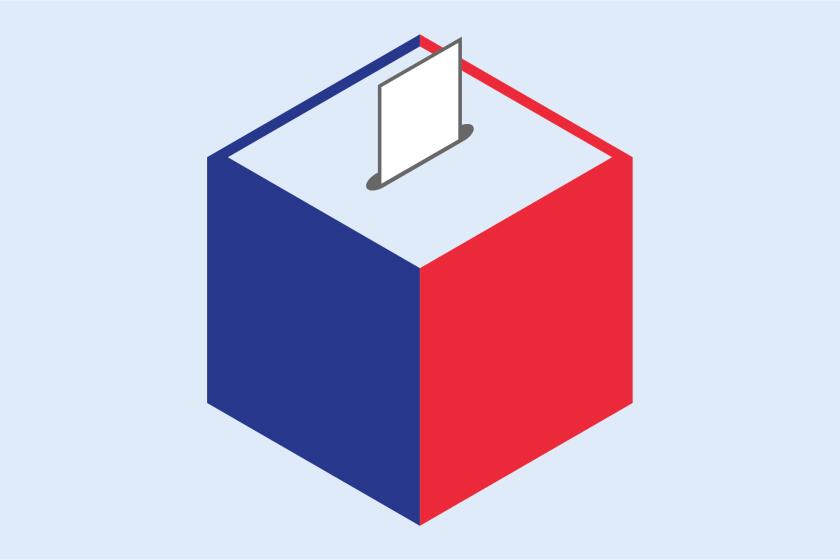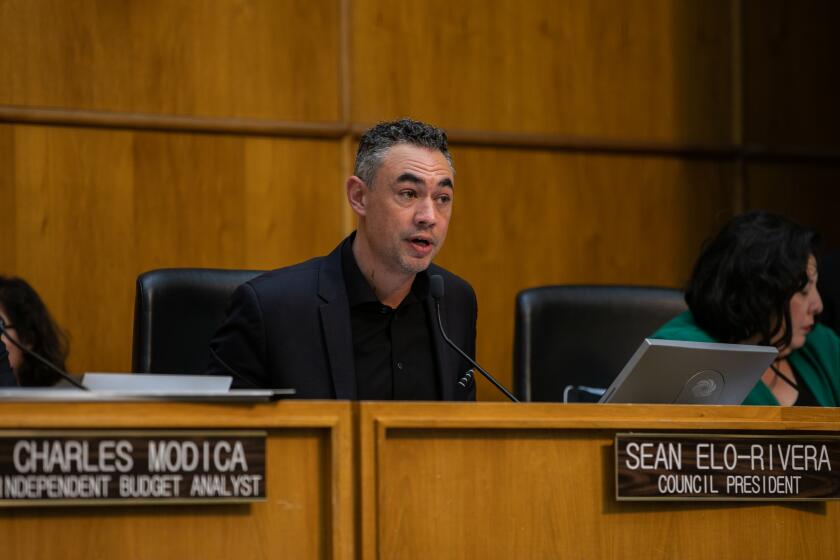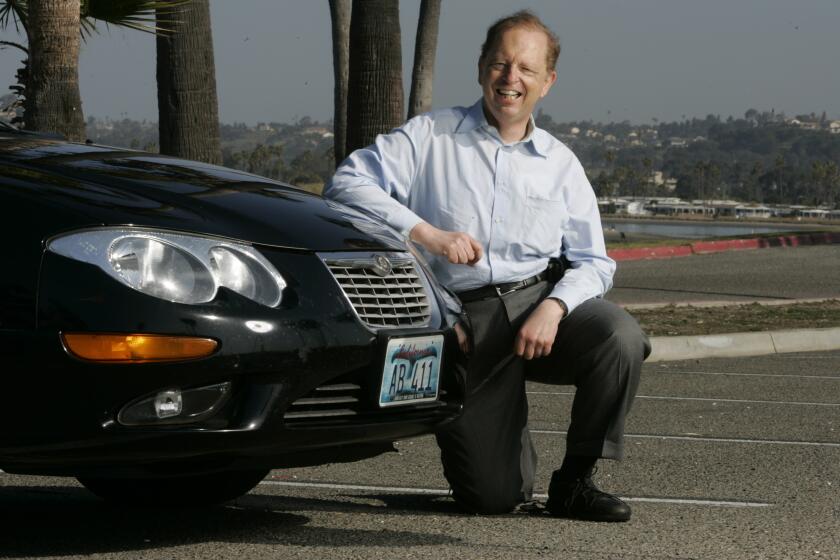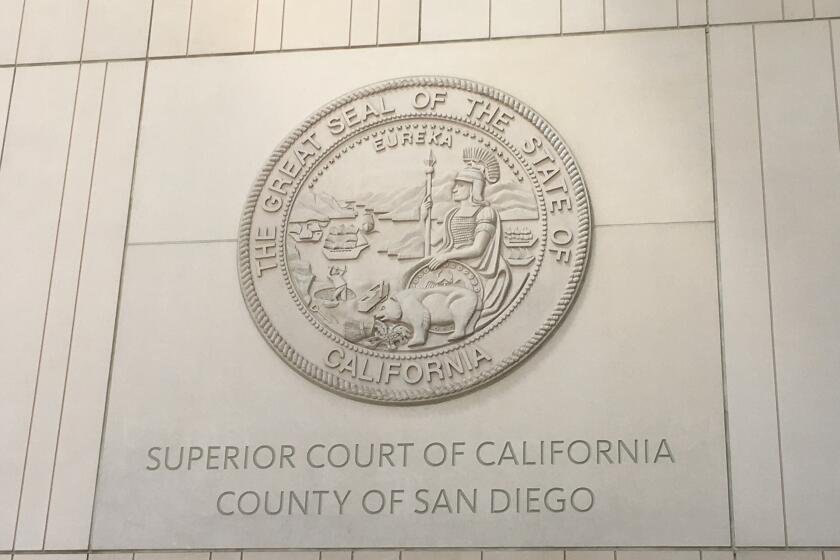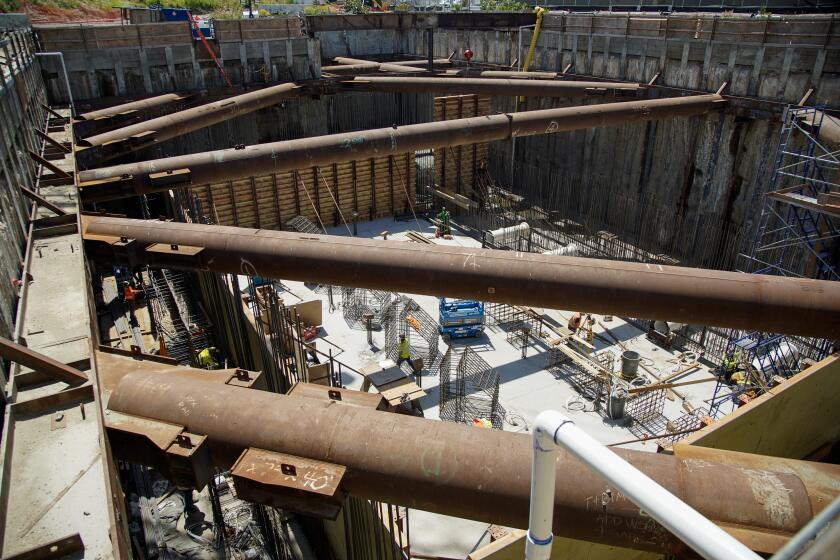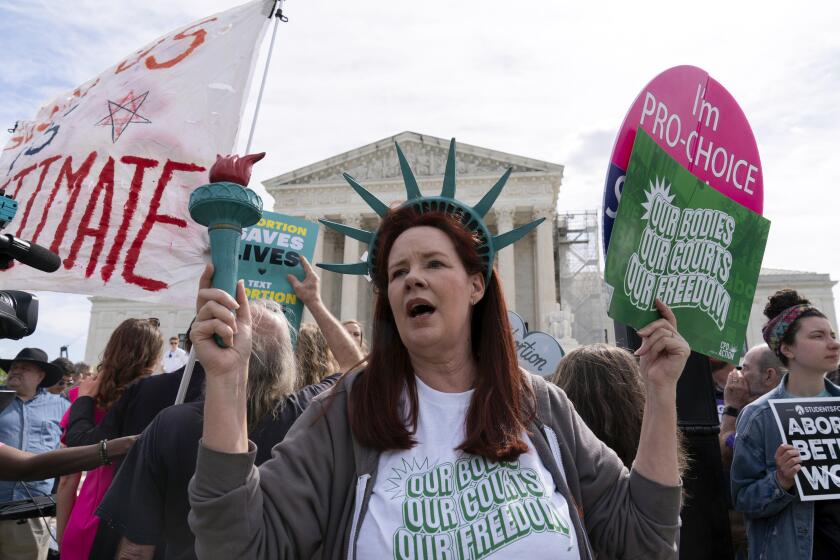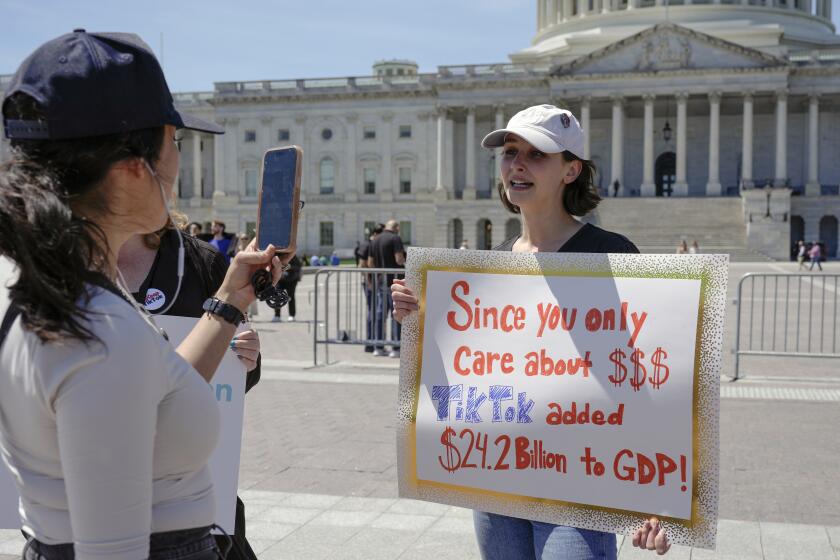‘Project labor’ deal to help revive San Diego’s stalled $5B Pure Water project
Pact, plus recent court victory, prompt city to resume soliciting bids for long-awaited sewage recycling system
San Diego officials have agreed to the first “project labor agreement” in city history to help resolve legal challenges that have stalled Pure Water, a $5 billion sewage recycling system that would produce one-third of the city’s water.
Project labor agreements are pro-union construction deals common in Los Angeles and the Bay Area, but relatively rare in San Diego due to the region’s tradition of mostly conservative politics.
Such pacts have been used locally to build two North County dams, to expand San Diego International Airport and to build Petco Park. But the city wasn’t the lead agency on any of those projects.
The new agreement and a favorable court ruling last week have made city officials confident enough to solicit construction bids for Pure Water projects starting next Friday. The PLA allows both union and non-union contractors to submit bids.
City officials say complex legal wrangling over union workers could take years
The bidding process initially began last year, but it was halted when a group of non-union contractors sued because some of the bids were open only to union contractors.
City explores multiple solutions for Pure Water, which aims to boost local water independence
The state Legislature then tried to solve the problem by passing a law requiring any part of the project that receives state funding to use a PLA. That’s why city officials have spent recent weeks negotiating a 63-page PLA with 26 local labor unions.
The state law, AB 1290, prompted the non-union contractors to file a second lawsuit contending the law illegally favored union contractors and conflicted with a 2012 city ballot measure partially banning PLAs.
In the second lawsuit, Superior Court Judge Richard Strauss ruled July 23 that there is no conflict between AB 1290 and the city ballot measure. He also ruled that AB 1290 doesn’t illegally favor union contractors over non-union contractors.
“There are no facts alleged which support the contention that AB 1290, on its face, discriminates against non-union contractors,” Strauss ruled. “The plain language of the bill permits any contractor, whether union or non-union, to sign a PLA and submit a bid.”
The non-union contractors, the local chapter of the Associated General Contractors, has 60 days to appeal the ruling. On the AGC website, chief executive Eddie Sprecco said this week that he was unsure of the organization’s next move.
“Without more information on these two legal fronts, additional questions remain,” he said. “AGC will await the final Superior Court ruling before determining the best route to answer those remaining questions.”
A key ruling is expected Sept. 4 in the initial lawsuit filed by AGC. The City Council rescinded the pro-union language that prompted the lawsuit, so city officials are optimistic Superior Court Judge John Mayer will lift the injunction he put in place last summer blocking Pure Water construction.
Johnnie Perkins, the city’s deputy chief operating officer for public utilities and public works, said the bids that launch Friday won’t be opened until late October, allowing the two lawsuits to progress and possibly be resolved.
Perkins said city officials plan to put nine additional Pure Water construction packages out for bid this fall, with each of them being released two to three weeks apart to allow local firms time to bid on each. The city hosted a “bid expo” this week that 300 local firms attended, Perkins said.
That timeline aims to have construction start on the project, including the main purification facility just east of La Jolla, in spring 2021. The first phase of Pure Water would then be scheduled for completion in summer 2024.
City officials say that every month of delay adds $4 million to the overall cost of the project, which has already risen from $3 billion to more than $5 billion since 2015 because of unanticipated costs for the project’s treatment plants and pipelines.
The city passes those cost increases onto its water and sewer ratepayers, who would benefit from the greater water independence Pure Water would create by giving drought-vulnerable San Diego its own reliable, local water supply.
On the PLA, which the city unveiled last week, Perkins said the pact sets a goal of having city residents make up 35 percent of the workers on the project, which is expected to generate thousands of construction jobs for several years.
There are also provisions to encourage the hiring of military veterans, he said.
The pact was also praised by labor leaders, including Tom Lemmon, business manager for the San Diego County Building and Construction Trades Council.
“San Diego Building Trades is pleased to see the city moving forward on this important infrastructure project and we welcome the opportunity to provide a local skilled and trained workforce through a project labor agreement to bring this historical project online,” Lemmon said by email.
San Diego officials in April got approval to store recycled water in Lake Miramar from the Regional Water Quality Control Board.
The city needs additional approvals from the state, including some large financial contributions to the project. It’s possible the dispute over PLAs could jeopardize those contributions.
City’s sewage recycling system still facing separate litigation filed by local contractors
In April, the city agreed to build seven medians in University City to settle a separate lawsuit filed by residents of that neighborhood over the location of the Pure Water pipeline.
Get Essential San Diego, weekday mornings
Get top headlines from the Union-Tribune in your inbox weekday mornings, including top news, local, sports, business, entertainment and opinion.
You may occasionally receive promotional content from the San Diego Union-Tribune.


